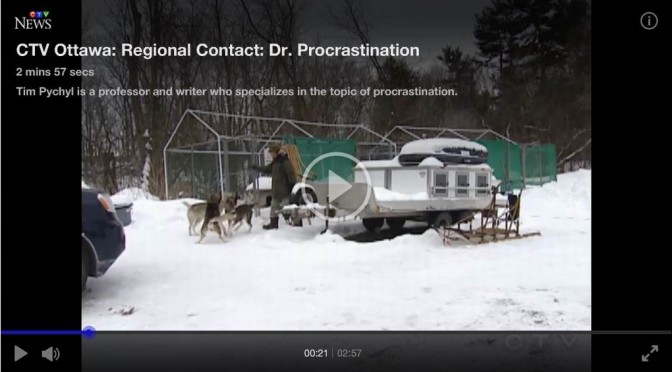 Joblessness related to education? And work ethic. And skills. And…
Joblessness related to education? And work ethic. And skills. And…
A single temp agency reports 20,000 unfilled jobs. One would think that temp jobs up would mean full time openings are down. Not so here: these jobs go unfilled not because everyone is happily employed but because they require 20,000 qualifications that job seekers don’t have. And we’re talking part time jobs.
The sad fact about unemployment today is its disproportionate impact on the unskilled and uneducated, but even for qualified job seekers many opportunities are temporary or part time.
Yep, part time work is the new job market. A look at the raw unemployment numbers to see that temp jobs are driving employment. The reasons for this trend are debatable, and we won’t go there. Still, that in 2010, one quarter of all new jobs created by the private sector were temporary ought to scare us all.
There are today 3.69 million jobs open to be filled, according to the Labor Department, which leaves us with about 3 workers for every job opening. Now, if you’re ignorant like me and you wonder why with 3 people available for every job there are still almost 4 million jobs left open, let’s think this through together:
Firstly, not all of those who are unemployed want a job. The vast majority of those on unemployment insurance find jobs the final month of payments or just after the benefits expire. That’s logical, especially if available jobs don’t pay much more than insurance. Next, individual skills and experience, of course, set the conditions for jobs for which one qualifies. And that’s the problem.
Most unfilled jobs tend to require skills, education, and lifestyle choices that are found only at a premium and by a few. In 2012, CNN reported that there were 200,000 job openings for long-haul truckers. That’s not an easy job, and given drug tests, driving records, and other requirements, one that’s not available to all comers. With my driving record, this is not a career choice for me. What about you? Do you make your daily choices as if a top security clearance depended upon it? You should.
I used to take students to visit the White House Garage, an Army unit that is charged with moving the White House whenever and wherever the President goes. (A few years ago, I did some historical work for them.) The Garage is staffed by NCOs led by a Sargeant Major and a hotshot CO — big league stuff. Whenever the NCOs speak to the students, they always stress the difficulty of appointment to this elite unit. They will not take you if you have a scar, blemish or otherwise unsightly shadow across your record — and that includes your social media history. Sorry, you shouldn’t have said that on Facebook. And the little marijuana bust, ain’t gonna pass. You can get a job from the President with all that, but you cannot get a job protecting the President with it.
And so the same for those other some 4 million unfilled jobs: the applicants don’t meet the job criteria, and vice versa.
A Wall Street Journal interview on Sept 20 with Bob Funk: Where the Jobs Are—and How to Get One highlights the dilemma. Funk owns the staffing firm, Express Employment Services, that has those 20,000 jobs to fill. As in right now. But he can’t fill them. And his jobs pay between $13 – $40 per hour. Why?
Let’s start with that one quarter of applicants fail a drug test.
Think about it: one out of four people looking for a job with this company can’t pass a drug test. Let’s take it further: those one of every four applicants were the brave ones, as the rest of the drug-taking unemployed didn’t apply. God bless those that tried.
Next, Funk says, applicants don’t have the skills. “If you’ve got a college degree in psych, poly-sci or sociology, sorry, I can’t help you find a job.” Degrees or training in engineering, IT, robotics, accounting, welding will get you a job, he says, and it could be one of the 20,000 openings his company is looking to fill with qualified applicants. They’re not out there. Or they’re taking unemployment or disability.
Now we get to Funk’s larger complaint, that today’s society doesn’t value success in the workplace:
“In my 40-some years in this business, the biggest change I’ve witnessed is the erosion of the American work ethic. It just isn’t there today like it used to be,” Mr. Funk says. Asked to define “work ethic,” he replies that it’s fairly simple but vital on-the-job behavior, such as showing up on time, being conscientious and productive in every task, showing a willingness to get your hands dirty and at times working extra hours. These attributes are essential, he says, because if low-level employees show a willingness to work hard, “most employers will gladly train them with the skills to fill higher-paying jobs.”
In addition to the “erosion of the American work ethic,” Funk points to fundamental problems in our educational system. He suggests that we reward good teachers instead of paying them all the same (been reading my stuff, Mr. Funk?), and that schools should offer vocational alternatives to students who are not academically focused.
I’d add to that last thought that, yes, vocational education should be available for high school and recent high school graduates, absolutely, but any single student can engage the standard high school curriculum so long as that student finds purpose in it. And that’s the rub.
A thousand reforms can’t change that our society is producing high school students ill-prepared for college and college students ill-prepared for the workplace. What can change is individual student choice.
One student at a time can choosing to make his or her academic life more meaningful means one more qualified job applicant — one at a time. Students, let the academic dysfunctions and social pressure to choose wrongly be someone else’s problem. Own your outcomes, students, but you have to choose it.
We help kids do this every day. One student at a time.
– Michael
The A+ Club from School4Schools.com LLC, based in Arlington, VA, is dedicated to helping students across the U.S.A. meet their goals and find the academic success the want and deserve. Contact us here or call now to (703) 271-5334 to see how we can help.
 Seemed like a good idea at the time…
Seemed like a good idea at the time…

 At the A+ Club, we make strong claims for the power of mentoring. We believe that consistent, positive feedback from caring, experienced, and non-judgmental educators empowers students by building lifetime skills and habits of reflection, goal setting, and general self-betterment.
At the A+ Club, we make strong claims for the power of mentoring. We believe that consistent, positive feedback from caring, experienced, and non-judgmental educators empowers students by building lifetime skills and habits of reflection, goal setting, and general self-betterment.




